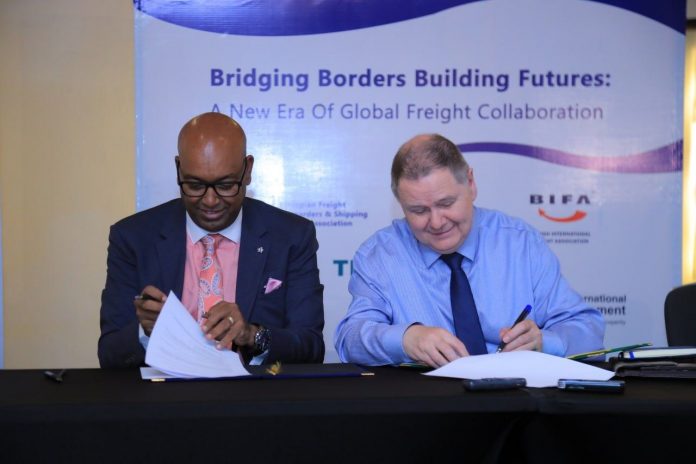The British International Freight Association (BIFA) has signed a Memorandum of Understanding (MoU) with the Ethiopian Freight Forwarders and Shipping Agents Association (EFFSAA), aimed at modernising and strengthening Ethiopia’s freight forwarding and logistics industry.
The official signing ceremony took place at the Hilton Hotel in Addis Ababa and marks a major step forward in international collaboration to develop Ethiopia’s logistics capabilities.
The MoU outlines a strategic partnership between the two associations, focusing on several key areas: building EFFSAA’s institutional capacity, providing advisory support to both public and private sector stakeholders, implementing specialised training for EFFSAA members, and facilitating the exchange of knowledge and best practices between the UK and Ethiopia.
Senior representatives from BIFA recently visited Ethiopia to meet with key players across government and industry.
The visit culminated in the ceremony, attended by high-level officials, development partners, and logistics stakeholders, who all emphasised the importance of the agreement in addressing Ethiopia’s ongoing logistics challenges and aligning the sector with international standards.
Dawit Woubishet, EFFSAA president said: “EFFSAA’s mission is to build a globally competitive logistics sector that supports Ethiopia’s economic growth by improving workforce skills, encouraging innovation, and creating international linkages.
“This agreement allows us to benefit from the expertise of a globally respected trade association with a key role in the international freight community through FIATA.”
BIFA director general Steve Parker added: “I am pleased that recognition of BIFA’s expertise in numerous areas has led to this MoU.
“It sets the stage for meaningful collaboration and knowledge sharing, and will support the transformation already underway in Ethiopia’s logistics sector.”
Ethiopia’s logistics industry, while rapidly growing, continues to face challenges related to infrastructure, technology adoption and workforce development.
The partnership is expected to play a key role in overcoming these barriers and fostering long-term growth.


